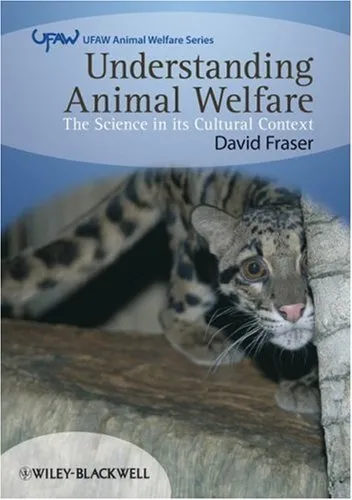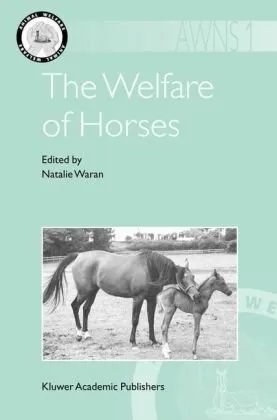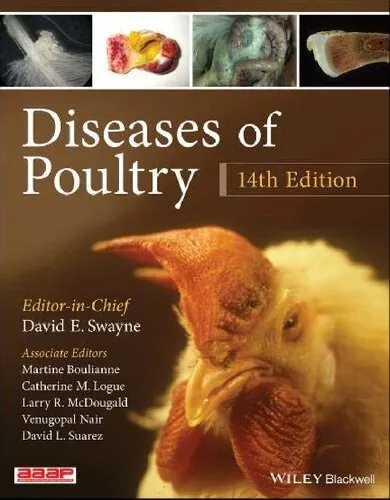Understanding animal welfare: the science in its cultural context
4.6
Reviews from our users

You Can Ask your questions from this book's AI after Login
Each download or ask from book AI costs 2 points. To earn more free points, please visit the Points Guide Page and complete some valuable actions.Related Refrences:
Introduction
Welcome to an exploration of the nuanced relationships between animals and humans. "Understanding Animal Welfare: The Science in Its Cultural Context" by David Fraser is a pivotal work that delves into the complexities of animal welfare, viewed through the lenses of science, philosophy, and social culture. This book provides an in-depth understanding of how human interventions, cultural perceptions, and scientific insights shape the welfare of animals globally.
Detailed Summary of the Book
In "Understanding Animal Welfare," David Fraser embarks on a journey to synthesize the scientific study of animal welfare with a deep appreciation of its cultural contexts. The book is structured to address crucial questions regarding how we can ensure the well-being of animals in various environments, including agricultural, domestic, and wild settings. The narrative begins by defining what constitutes animal welfare, presenting various definitions and perspectives that have emerged over time. Fraser goes further to discuss the historical evolution of human-animal relationships and the influence of societal changes on these interactions.
Fraser's approach is holistic, considering the ethical implications of animal welfare alongside biological and environmental factors. The book examines critical issues such as pain perception in animals, emotional states, ethics, and the role of legislation in promoting animal welfare. Through this examination, readers gain insights into how different cultures and religions perceive and treat animals. With illustrative case studies, Fraser provides real-world applications of theoretical concepts to enhance understanding and illustrate the importance of context in animal welfare science.
Key Takeaways
- Animal welfare is a multidimensional concept that encompasses biological functioning, emotional states, and natural living.
- Cultural influences play a significant role in shaping attitudes towards animal welfare, highlighting the need for culturally sensitive approaches.
- Science and technology can provide tools to assess and improve animal welfare, but ethical considerations must guide their application.
- Effective animal welfare policies require collaboration between scientists, policymakers, industry leaders, and the public.
- The importance of education in fostering a global culture that values humane treatment of animals.
Famous Quotes from the Book
"Animal welfare is not simply a matter of ensuring good physical health; it is also providing animals with the freedom to express their natural behaviors."
"Our treatment of animals reflects not only on the animals themselves but equally on us as a society and on the values we hold dear."
Why This Book Matters
This book is vital because it bridges the gap between scientific research and cultural ethics, offering a comprehensive view of animal welfare. As the world grapples with environmental changes and ethical dilemmas concerning animal treatment, Fraser's work serves as a guiding light for individuals and policymakers striving for humane practices. His balanced examination of the subject stimulates discourse among academics, industry influencers, and the general public, encouraging informed decisions that benefit both human and animal communities.
By reading this book, you embark on a transformative journey to better appreciate the interconnectedness between human welfare and animal welfare. Fraser's dedication to nuanced analysis equips readers with knowledge and empathy, driving forward the global conversation on the ethics and science of animal welfare.
Free Direct Download
You Can Download this book after Login
Accessing books through legal platforms and public libraries not only supports the rights of authors and publishers but also contributes to the sustainability of reading culture. Before downloading, please take a moment to consider these options.
Find this book on other platforms:
WorldCat helps you find books in libraries worldwide.
See ratings, reviews, and discussions on Goodreads.
Find and buy rare or used books on AbeBooks.
1460
بازدید4.6
امتیاز0
نظر98%
رضایتReviews:
4.6
Based on 0 users review
Questions & Answers
Ask questions about this book or help others by answering
No questions yet. Be the first to ask!













